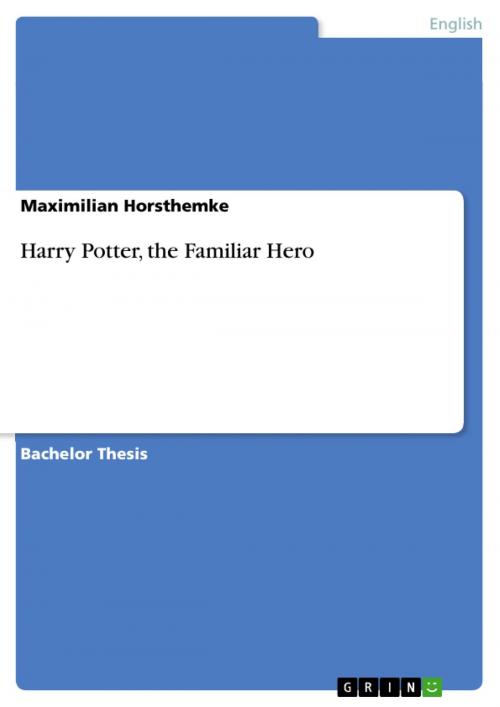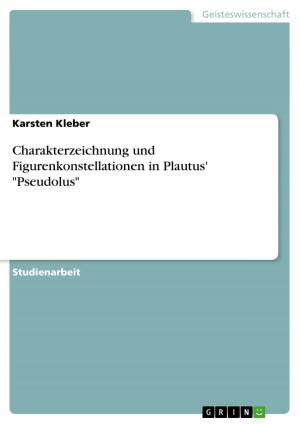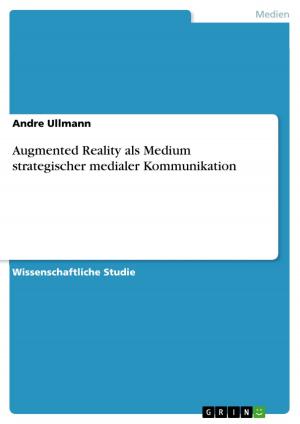| Author: | Maximilian Horsthemke | ISBN: | 9783640903641 |
| Publisher: | GRIN Verlag | Publication: | May 1, 2011 |
| Imprint: | GRIN Verlag | Language: | English |
| Author: | Maximilian Horsthemke |
| ISBN: | 9783640903641 |
| Publisher: | GRIN Verlag |
| Publication: | May 1, 2011 |
| Imprint: | GRIN Verlag |
| Language: | English |
Bachelor Thesis from the year 2010 in the subject English Language and Literature Studies - Literature, grade: 1,3, Ruhr-University of Bochum (Anglistik/Amerikanistik), language: English, abstract: Since the publication of the first book in the series in 1997, Harry Potter has become a worldwide phenomenon. One can think of several explanations for this lasting popularity. Maybe one reason for it lies in the use of certain archetypes and story arcs that can be found in popular tales. This thesis will examine in what way and to what extent Harry Potter can be added to the archetypal heroes the American mythologist Joseph Campbell has described in his book 'The Hero with a Thousand Faces' in 1949, first by lining out the different stages Campbell laid out in his book and then by applying them to the Harry Potter novels. The analysis is divided according to the three stages Campbell uses (Departure - Initiation - Return).
Bachelor Thesis from the year 2010 in the subject English Language and Literature Studies - Literature, grade: 1,3, Ruhr-University of Bochum (Anglistik/Amerikanistik), language: English, abstract: Since the publication of the first book in the series in 1997, Harry Potter has become a worldwide phenomenon. One can think of several explanations for this lasting popularity. Maybe one reason for it lies in the use of certain archetypes and story arcs that can be found in popular tales. This thesis will examine in what way and to what extent Harry Potter can be added to the archetypal heroes the American mythologist Joseph Campbell has described in his book 'The Hero with a Thousand Faces' in 1949, first by lining out the different stages Campbell laid out in his book and then by applying them to the Harry Potter novels. The analysis is divided according to the three stages Campbell uses (Departure - Initiation - Return).















